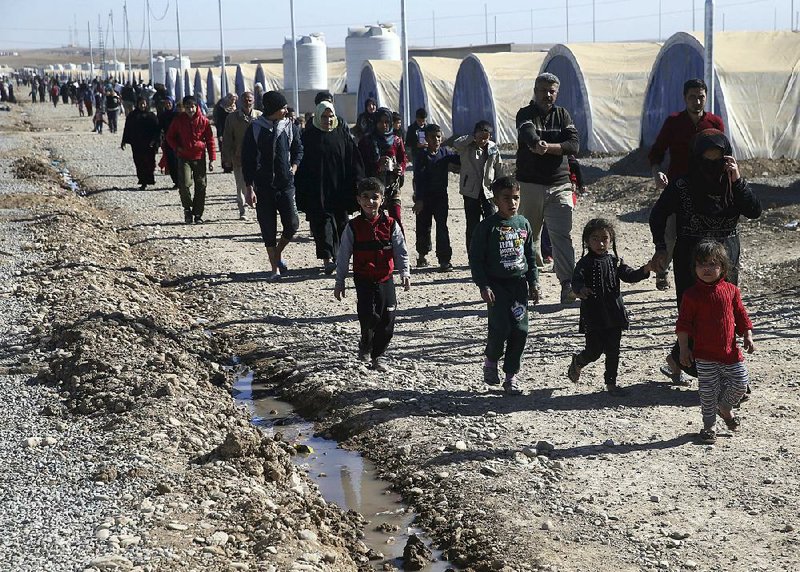MOSUL, Iraq -- Iraqi troops fighting Islamic State militants in the eastern outskirts of Mosul regrouped Monday in neighborhoods they recently retook from the extremist group, conducting house-to-house searches and looking for car bombs, a top Iraqi commander said.
Maj. Gen. Sami al-Aridi of the Iraqi military's special forces told The Associated Press that his men also foiled two attempted suicide car bombings earlier in the day, firing from a U.S.-made tank on the approaching vehicles, which exploded before hitting their intended targets.
A civilian woman was wounded in one of the blasts, the commander said.
The Iraqi military launched a campaign on Oct. 17 to retake Mosul, Iraq's second-largest city and the extremist group's last major urban bastion in the country. Most gains have been made by the special forces operating in the part of the city east of the Tigris River. The U.S.-led coalition is providing airstrikes and other support.
The resilience of the Islamic State fighters and the reluctance of the Iraqi military and its Western backers to use overwhelming firepower -- in order to avoid civilian casualties in the city of 1 million -- have led to the slow pace of the battle to retake Mosul. More than a month since the operations started, the special forces remain some 6 miles from Mosul's city center.
Mosul residents reached by telephone inside the city and two special-forces officers said an airstrike Monday by the U.S.-led coalition destroyed a major bridge over the Tigris in the southern part of the city.
It's the third of the city's five bridges over the Tigris to be targeted by the coalition. One was hit shortly before the offensive to retake Mosul began and the other soon after it started.
The residents spoke to the AP on condition of anonymity because they feared reprisals by the Islamic State.
In Baghdad, Prime Minister Haider al-Abadi made an impassioned call for unity in an address to the nation Monday. Accusing unnamed parties of seeking to raise the specter of sectarian strife, he said, "Our strength lies in our diversity ... we have a tough task ahead of us to rebuild what Daesh destroyed." Daesh is the Arabic acronym for the Islamic State.
"All Iraqis are first-class citizens," he said.
But sectarian concerns were raised by the battle for Tal Afar, some 44 miles to the west. Shiite militias are leading the fight to retake that city from the Islamic State extremist group, which is Sunni.
Officially, the Iraqi government and top militia leadership say that only Iraqi army units will enter Tal Afar. But some of the militias' most powerful units, as well as field commanders and troops, say the militias will be the ones to drive out the extremists.
"The Iranians are with us," said Jaafar al-Husseini, a spokesman for Iraq's Hezbollah Brigades. He said Iran, a Shiite nation, was supporting the militias directly, including strategy from Revolutionary Guards commander Gen. Qassem Soleimani, who is in charge of a crescent of Shiite power stretching from Tehran to Beirut.
"Our mission and that of the [Iraqi Shiite] Badr Brigades is to encircle Tal Afar from the east. Then we will storm it," he said, adding that Soleimani visited a nearby staging ground three days ago.
Also Monday, three separate attacks in and around Baghdad killed at least five civilians and wounded 26, according to police and health officials who spoke on condition of anonymity because they were not authorized to talk to reporters.
Baghdad has for more than a decade experienced near daily attacks, which have claimed thousands of lives. The attacks have mostly been blamed on the Islamic State, its forerunner al-Qaida or extremist Shiite groups.
Information for this article was contributed by Qassim Abdul-Zahra, Maamoun Youssef, Sinan Salaheddin and Brian Rohan of The Associated Press.
A Section on 11/22/2016


